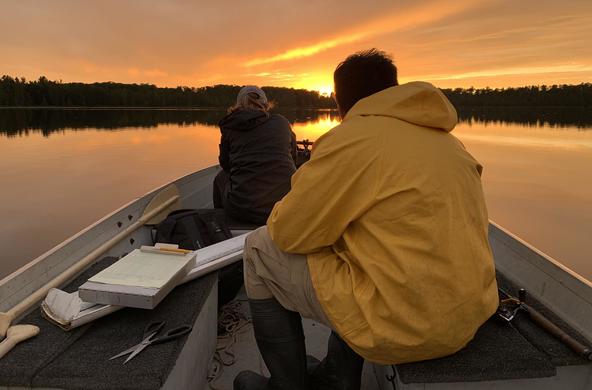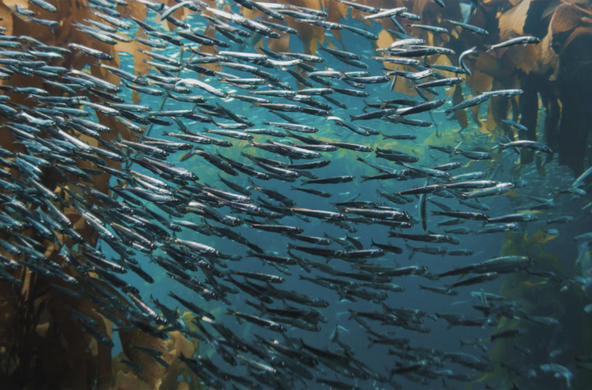Setting the stage for fishery success
What makes for good fishing? And how can we keep it going, so that today’s anglers can pass on more than tall fish tales?
We are looking at the social and ecological factors that influence fishery health in northern Wisconsin and working with lake users and managers to identify effective management strategies.
Findings have big picture applications – not only to fisheries, but also to other shared resources like forests, pastures, groundwater, and the atmosphere.
The problem
- Shared or common-pool resources pose complex management challenges.
- Threats like overfishing, invasive species, habitat loss, and development are degrading lake ecosystems and the fish they support.
- Throughout the US, many regions depend on revenue from lake-based recreation.
We are exploring...
- How ecological and social processes shape recreational fisheries at the landscape scale
- How the ‘tragedy of the commons’ influences lake health
- The effectiveness of management strategies being used by lake associations
- How decisions made by anglers impact freshwater fisheries
Our discoveries
Current economic theory suggests that open-access resources fall victim to the ‘tragedy of the commons’.
Without explicit ownership, there is no incentive for voluntary stewardship. As a result, shared resources like fisheries and forests suffer exploitation and poor management.
Our work tells a different story. We’ve analyzed fish stocking rates by northern Wisconsin lake associations and modeled the biological and economic impacts. Findings show that incentives exist to promote investment in lake management.
These findings bear important implications for governance of common pool resources around the world.
Many models of lake fisheries assume that coarse woody structures in the water – like felled trees and stumps – provide protective habitat for juvenile fish and help stabilize fish populations.
We conducted one of the first large-scale tests of this assumption and did not find evidence to support it. Purported benefits of adding woody structures to freshwaters may need to be reexamined, and large-scale assessments are a key research need.



